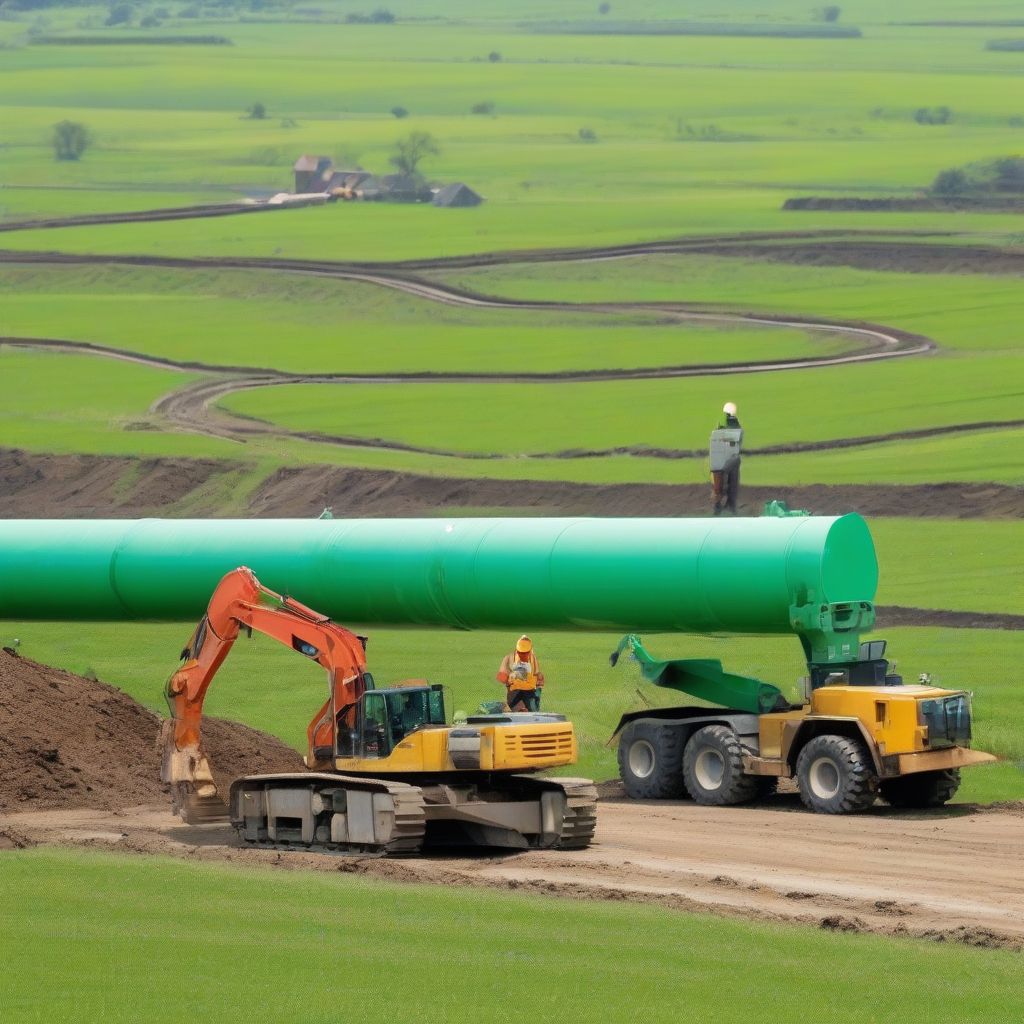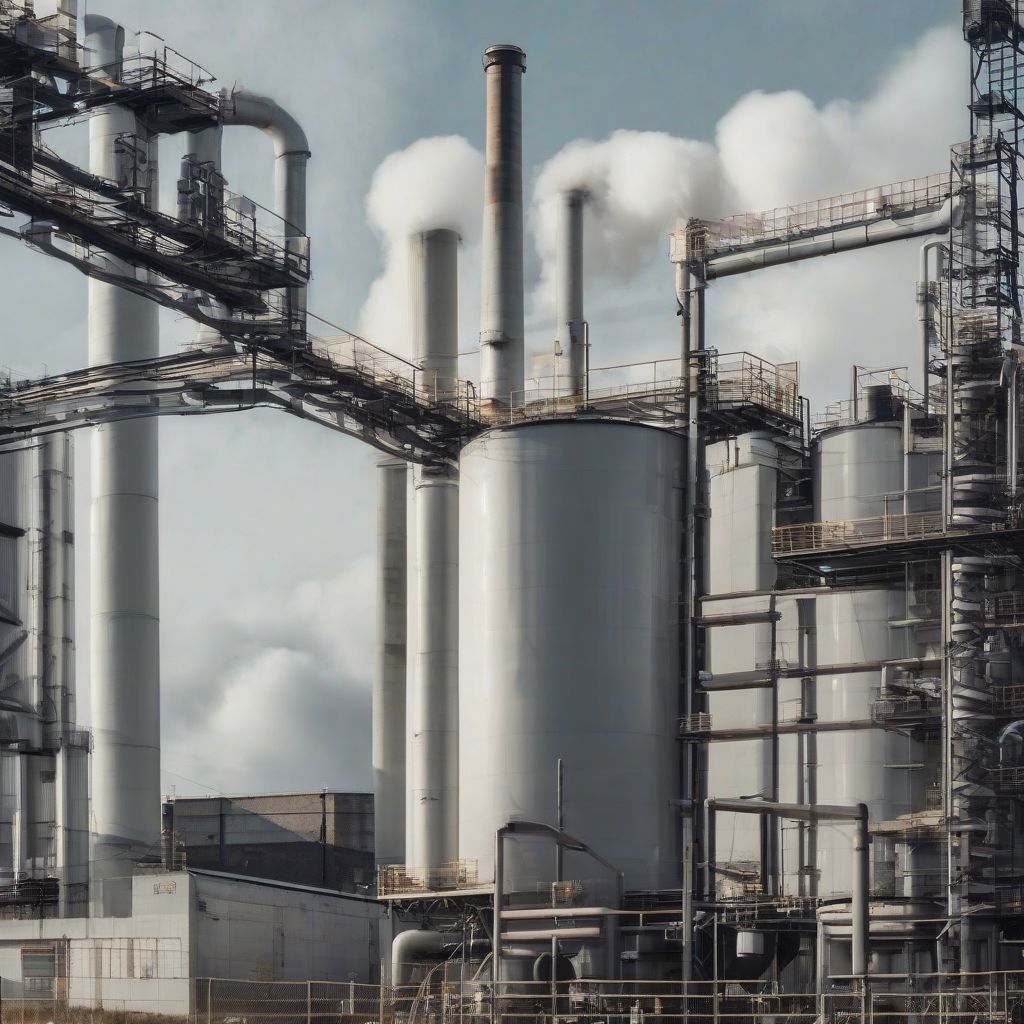Understanding Pipeline Industry Companies: A Deep Dive

The intricate network of pipelines crisscrossing our planet plays a vital role in the global energy landscape. These engineering marvels transport essential resources like natural gas, oil, and water across vast distances, fueling economies and sustaining lives. At the heart of this complex system lie Pipeline Industry Companies, the driving force behind the construction, operation, and maintenance of these critical infrastructures. This article delves into the multifaceted world of pipeline industry companies, exploring their functions, significance, and the challenges they face.
What are Pipeline Industry Companies?
Pipeline industry companies encompass a broad spectrum of businesses involved in various stages of the pipeline lifecycle. These companies can be broadly categorized as:
- Pipeline Operators: These companies are responsible for the day-to-day management and operation of pipeline systems. Their tasks include monitoring pipeline integrity, ensuring safe and efficient transportation of products, and complying with stringent regulatory standards.
- Pipeline Construction Companies: As their name suggests, these companies specialize in the design and construction of new pipelines. They employ skilled engineers, welders, and other professionals to lay down pipelines across diverse terrains, from deserts to mountains and even underwater.
- Pipeline Equipment and Technology Providers: This category includes companies that manufacture and supply the specialized equipment and technology used in pipeline construction and operation. Examples include pipe manufacturers, valve suppliers, and companies developing leak detection systems and pipeline inspection robots.
- Pipeline Service Providers: These companies offer a range of specialized services to pipeline operators and other industry stakeholders. Their services may include pipeline inspection and maintenance, corrosion protection, environmental consulting, and regulatory compliance support.
The Crucial Role of Pipeline Industry Companies
Pipeline industry companies play an indispensable role in the global energy supply chain and beyond. Here’s why they are crucial:
- Energy Security: Pipelines provide a secure and reliable means of transporting energy resources, reducing dependence on vulnerable shipping routes and contributing to national energy security.
- Economic Growth: The pipeline industry supports millions of jobs worldwide, generating significant economic activity through construction projects, ongoing operations, and related industries.
- Environmental Responsibility: While pipelines have faced criticism in the past, the industry has made significant strides in improving safety and minimizing environmental impact. Modern pipelines incorporate advanced leak detection technologies, and companies are increasingly focusing on renewable energy transportation.
Key Trends and Challenges in the Pipeline Industry
The pipeline industry is not without its challenges. Companies in this sector must adapt to evolving market dynamics, technological advancements, and growing public scrutiny. Here are some key trends and challenges:
1. Aging Infrastructure and Maintenance
Many existing pipelines are decades old, requiring significant investments in maintenance and upgrades to ensure safety and reliability. Pipeline industry companies are increasingly relying on data analytics, predictive modeling, and advanced inspection technologies to identify and address potential issues before they escalate.
2. The Rise of Renewable Energy
The global shift towards renewable energy sources like solar and wind power presents both challenges and opportunities for the pipeline industry. While the demand for traditional fossil fuel pipelines might decline, there’s a growing need for pipelines to transport hydrogen, a promising clean energy carrier, and to connect renewable energy sources to population centers.
3. Public Perception and Environmental Concerns
Pipeline projects often face public opposition due to concerns about environmental impact, safety hazards, and property rights. Pipeline industry companies need to engage with communities, address concerns transparently, and demonstrate their commitment to sustainable practices.
caingong.com/wp-content/uploads/2024/08/pipeline-construction-66bc85.jpg" alt="Pipeline Construction" width="1024" height="1024">Pipeline Construction
The Future of Pipeline Industry Companies
The pipeline industry is poised for significant transformation in the coming years. Companies that embrace innovation, prioritize sustainability, and adapt to the changing energy landscape are likely to thrive. Here’s a glimpse into the future of pipeline industry companies:
- Digitalization and Automation: The industry is witnessing increased adoption of digital technologies like artificial intelligence, drones, and robotics for pipeline inspection, maintenance, and leak detection, improving safety and operational efficiency.
- Focus on Sustainability: Pipeline companies are actively exploring ways to reduce their environmental footprint by investing in renewable energy transportation, developing carbon capture and storage technologies, and implementing stricter environmental management systems.
- Global Expansion: As developing economies grow, so does the demand for energy infrastructure. Pipeline industry companies are expected to play a key role in building new pipelines in emerging markets, connecting remote regions, and facilitating economic growth.
Conclusion
Pipeline industry companies are essential players in the global energy landscape, ensuring the safe and efficient transportation of vital resources. As the world transitions towards a more sustainable energy future, these companies face both challenges and opportunities. By embracing innovation, prioritizing safety and environmental responsibility, and engaging transparently with stakeholders, pipeline industry companies can continue to play a vital role in powering the world for generations to come.



Leave a Comment